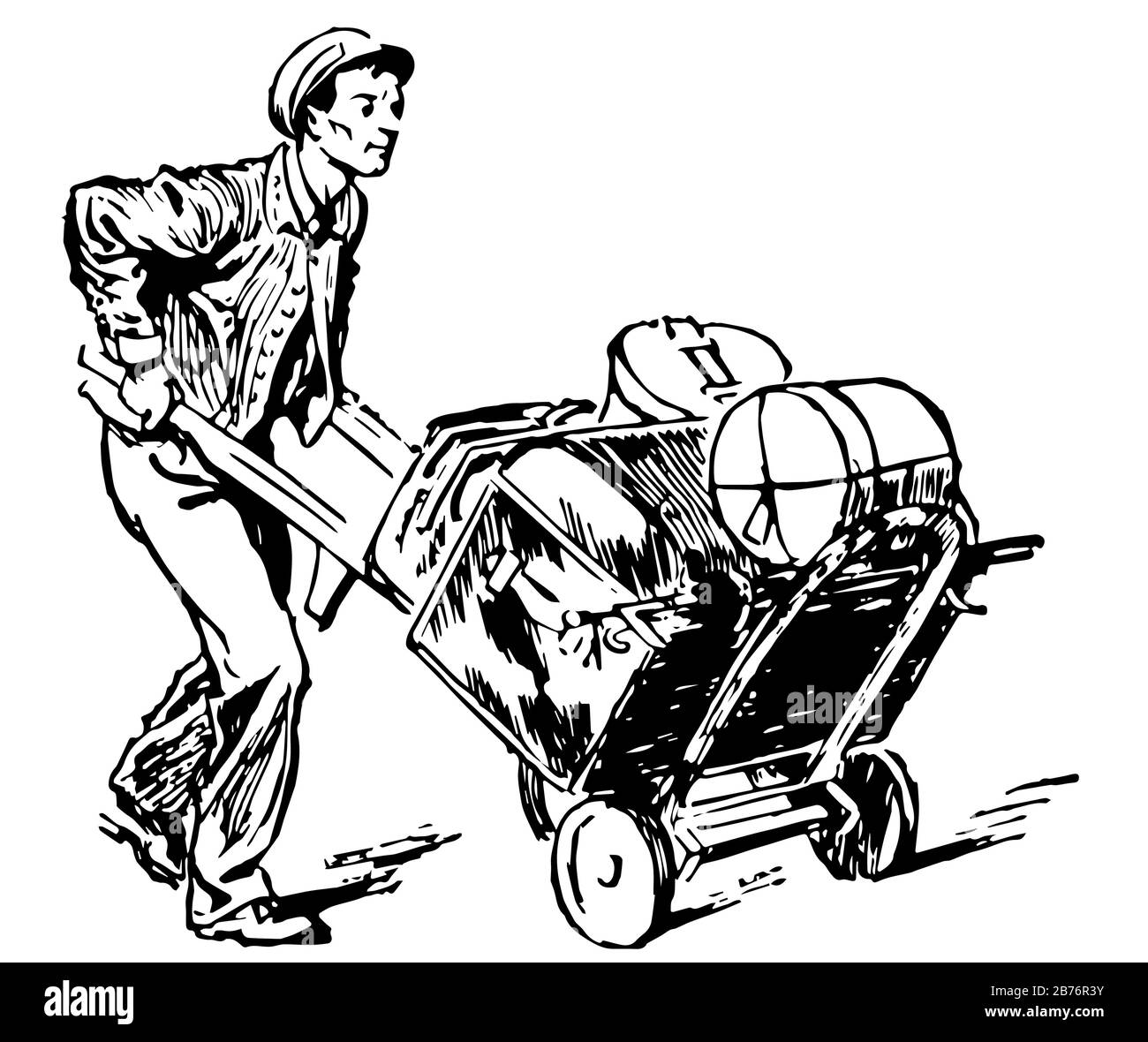Historical Context of the Term “Porter”

The term “porter” has a rich history, evolving significantly from its origins to its modern usage. Its meaning has shifted over time, reflecting changes in society, technology, and the roles people play in the world. Understanding the historical context of the term “porter” helps us appreciate its multifaceted nature and the various ways it has been used throughout history.
Evolution of the Term “Porter
The term “porter” originated in the Middle Ages, derived from the French word “porteur,” meaning “carrier.” Early porters were primarily responsible for carrying goods and luggage, often for travelers or merchants. They were typically employed at inns, taverns, and marketplaces, assisting with the movement of goods and providing essential services.
- Early Usage: In the 14th century, “porter” referred to individuals who carried goods on their backs, often in cities and towns. They were essential for transporting goods, particularly in the absence of efficient transportation systems.
- Shifting Roles: By the 16th century, the term “porter” began to encompass a wider range of roles, including those who carried luggage at inns and taverns, served drinks at pubs, and even worked as doormen. The term “porter” became associated with various occupations involving physical labor and service.
- Industrial Revolution: The Industrial Revolution further transformed the meaning of “porter.” As factories and industries emerged, “porters” became integral to the movement of goods within factories and warehouses. They played a crucial role in the efficient operation of industrial processes.
- Modern Usage: In the 20th century, the term “porter” continued to evolve. It became associated with various roles in transportation, including those who carried luggage at airports, train stations, and hotels. The term also extended to encompass individuals who worked in specific industries, such as “hotel porters” or “hospital porters.”
Modern Definitions of “Porter”: Porter Definition

The term “porter” has evolved significantly over time, and its modern usage encompasses a variety of roles and responsibilities across different industries. While the traditional image of a porter as a manual laborer carrying luggage or goods remains relevant, the modern definition of “porter” is more nuanced and encompasses a wider range of tasks and skills.
Types of Porters in Modern Society
The modern world features a diverse range of porters, each playing a crucial role in specific industries. Here are some prominent types of porters and their responsibilities:
- Hotel Porters: Hotel porters, also known as bellhops, are responsible for assisting guests with luggage, providing directions, and offering concierge services. They are the first point of contact for many guests and play a vital role in creating a positive first impression.
- Hospital Porters: Hospital porters are essential members of the healthcare team. They transport patients, medical equipment, and supplies within the hospital. They also assist with cleaning and maintaining the hospital environment.
- Warehouse Porters: Warehouse porters are responsible for loading and unloading goods, moving materials within the warehouse, and maintaining inventory accuracy. They are crucial for the efficient operation of warehouses and distribution centers.
- Construction Porters: Construction porters are responsible for carrying materials, cleaning up work areas, and assisting construction workers with various tasks. They are often employed on large-scale construction projects and play a vital role in ensuring the smooth operation of the construction site.
- Airport Porters: Airport porters assist passengers with their luggage, provide information about the airport, and ensure the smooth flow of passengers through the airport. They are often employed by airlines or airport authorities.
Skills and Qualifications of Porters
The skills and qualifications required of a porter vary depending on the industry and specific role. However, some common skills and qualifications include:
- Physical Strength and Endurance: Many porter roles require physical strength and endurance, particularly for tasks involving heavy lifting, carrying, or moving objects.
- Customer Service Skills: Porters often interact with customers or clients, so excellent customer service skills are essential. This includes being polite, helpful, and professional.
- Organizational Skills: Porters must be able to organize their work, prioritize tasks, and manage their time effectively. This is particularly important in roles where they are responsible for multiple tasks or deadlines.
- Communication Skills: Clear and effective communication skills are crucial for porters to understand instructions, communicate with colleagues, and provide information to customers or clients.
- Safety Awareness: Porters must be aware of safety regulations and procedures and follow them diligently. This is particularly important in industries where they handle heavy equipment or work in hazardous environments.
- First Aid Training: In some industries, such as healthcare or construction, first aid training is a requirement for porters. This ensures they can provide immediate assistance in case of an emergency.
The Significance of Porters in Various Industries

Porters play a vital role in a variety of industries, contributing to the smooth operation and positive experiences of customers and clients. From hospitality to transportation and logistics, their dedication and skills are essential for ensuring efficient and seamless service delivery.
Porters in the Hospitality Industry, Porter definition
Porters in the hospitality industry are often referred to as bellhops or luggage handlers. Their primary responsibility is to assist guests with their luggage, providing a welcoming and efficient arrival and departure experience.
The importance of porters in the hospitality industry is undeniable:
- Enhanced Guest Experience: Porters create a positive first impression by providing a welcoming and helpful service, contributing to overall guest satisfaction. They ensure a seamless check-in and check-out process, relieving guests of the burden of carrying heavy luggage.
- Increased Efficiency: Porters streamline luggage handling, ensuring timely delivery to guest rooms and minimizing delays. They also assist with other tasks, such as delivering room service and providing directions to guests, further enhancing operational efficiency.
- Improved Safety and Security: Porters play a crucial role in maintaining safety and security by assisting guests with their luggage, ensuring its safe transport to their rooms. They are often trained in basic security procedures and can assist in addressing any potential safety concerns.
Porters in the Transportation Industry
In the transportation industry, porters play a crucial role in ensuring the smooth flow of passengers and their luggage. Their responsibilities include assisting passengers with boarding and disembarking, handling luggage, and providing general assistance.
The significance of porters in the transportation industry is evident in:
- Improved Passenger Experience: Porters provide a seamless and stress-free travel experience by assisting passengers with luggage, navigating terminals, and addressing any queries. Their presence ensures a positive and memorable journey.
- Increased Operational Efficiency: Porters contribute to the efficient flow of passengers and luggage, reducing congestion and delays. They assist with boarding and disembarking, ensuring a smooth transition between transportation modes.
- Enhanced Safety and Security: Porters are often trained in safety and security procedures, ensuring the safety of passengers and their belongings. They can assist with baggage handling, ensuring that all luggage is properly secured and transported.
Porters in the Logistics Industry
Porters in the logistics industry are responsible for handling and transporting goods within warehouses, distribution centers, and other logistics facilities. Their responsibilities include loading and unloading trucks, moving pallets, and ensuring the efficient flow of goods.
The importance of porters in the logistics industry is highlighted by:
- Increased Efficiency and Productivity: Porters play a vital role in ensuring the efficient movement of goods within logistics facilities. Their expertise in handling and transporting goods contributes to faster turnaround times and improved productivity.
- Reduced Damage and Loss: Porters are trained in proper handling techniques, minimizing the risk of damage or loss to goods during transportation. Their expertise in handling different types of cargo ensures that goods are transported safely and securely.
- Improved Safety and Security: Porters are often responsible for maintaining safety and security within logistics facilities. They can assist with inventory management, ensuring the accurate tracking and movement of goods.
Roles and Responsibilities of Porters in Different Industries
The following table summarizes the roles and responsibilities of porters in different industries:
| Industry | Roles and Responsibilities |
|—|—|
| Hospitality | Assisting guests with luggage, providing directions, delivering room service, maintaining cleanliness of public areas |
| Transportation | Assisting passengers with boarding and disembarking, handling luggage, providing information and assistance |
| Logistics | Loading and unloading trucks, moving pallets, handling and transporting goods, maintaining warehouse cleanliness |
Key Skills and Attributes of Successful Porters
Regardless of the industry, successful porters possess a combination of skills and attributes that enable them to excel in their roles:
- Physical Strength and Endurance: Porters often handle heavy luggage and goods, requiring physical strength and stamina. They must be able to lift, carry, and move items efficiently.
- Customer Service Skills: Porters interact with customers and clients regularly, requiring excellent communication and interpersonal skills. They must be friendly, helpful, and able to address customer needs effectively.
- Organizational Skills: Porters must be organized and efficient in their work, managing multiple tasks and prioritizing responsibilities. They must be able to track luggage, goods, and other items accurately.
- Attention to Detail: Porters must be detail-oriented, ensuring that luggage and goods are handled with care and transported safely. They must also pay attention to cleanliness and safety standards.
- Teamwork Skills: Porters often work as part of a team, requiring strong teamwork skills. They must be able to collaborate effectively with colleagues and supervisors.
Porter definition – A porter, by definition, is a person who carries luggage or goods, often for a fee. But what if the cargo they carry holds secrets, whispers of a past life, or perhaps even the key to a hidden world? The actor who embodies this kind of enigmatic porter, jason of dune actor , brings a raw intensity to the role, leaving us wondering what mysteries lie beneath the surface of his character.
Perhaps, like the porter, we too are carrying hidden burdens, stories waiting to be told, and destinies yet to be revealed.
A porter, by definition, is a person who carries luggage or goods, often for a fee. Their work is often shrouded in mystery, like the whispers of the desert wind. One might imagine a porter, laden with burdens, passing through the dunes, perhaps even encountering Jason Momoa as Duncan Idaho , a figure of immense strength and quiet grace.
These two, bound by their roles in the grand scheme of things, would share a moment, a silent exchange of understanding, before each continued on their path, their burdens and their destinies intertwined. The porter, then, becomes a symbol of resilience, a silent guardian of secrets, their presence a subtle reminder of the weight we all carry.
